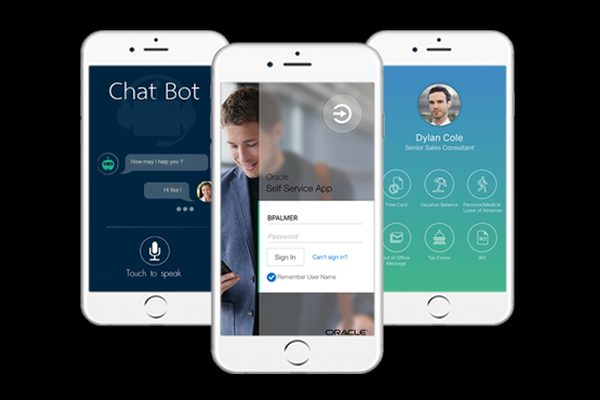Published on the 03/05/2018 | Written by Dan Brooks, Product Marketing Manager at Oracle

Chatbots just could be the game-changer for SMBs looking to compete against larger competitors…
With the help of a chatbot, small companies now can engage with thousands, or millions, of customers in an automated, personalised conversation by using a combination of natural language processing and machine learning, removing the economies of scale advantage that large enterprises often have.
As consumers become used to engaging with AI-powered interfaces (usually in a messaging channel like Facebook Messenger) and receiving personalised, accurate responses to questions almost instantaneously, chatbots have the potential to become the next generation ‘web browser’.
Yet with their exploding popularity, chatbots do create pitfalls for SMBs that are unprepared for this new engagement medium.
In a recent Wall Street Journal article author Chris Murphy spoke with Oracle Vice President of Product Management – Mobile, Bots & AI, Suhas Uliyar, to learn how SMBs can avoid these pitfalls and to understand just what these businesses must do in order to engage customers successfully when using chatbots.
Here are some of Uliyar’s tips:
1. Be ready to engage customers across multiple digital channels
Every customer has his or her favorite digital channel; some may prefer engaging through WeChat while others prefer using Alexa or Google Assistant. In addition, different channels are popular in different countries and regions of the world, and some channels may even be banned in certain areas. As an SMB, it’s important not only to recognize this, but also to be able to adapt and serve your customers in the channel they prefer.
2. Have real conversations with your customers
First, businesses shouldn’t trick their customers into believing that they are speaking with a human when, in fact, they are speaking with a chatbot; it’s not cool. Second, and equally as important, these small companies need to take advantage of improved natural language processing capabilities so that their customers can communicate in a normal way with chatbots. You wouldn’t want your customers to have to remember specific code phrases or use awkward grammatical syntax in order to ask a the chatbot a question; that would be a poor user experience.
3. Use machine learning
If your chatbot can’t understand that “What’s my balance?” and “How much money do I have?” are two variations of the same question, you’re going to end up with a lot of frustrated customers. Using machine learning algorithms to allow chatbots to learn and get smarter over time is critical to providing customers with the best engagement experience. Rest assured that enterprises are already taking advantage of Machine Learning; small businesses need to do the same.
4. Integrate with your company’s back-end systems and data
A chatbot is only as intelligent as the data and the systems that it can access. If a customer wants to order a pair of shoes through a chatbot, but the chatbot can’t access real-time inventory due to limited integration with the seller’s systems, then how intelligent/helpful is the chatbot? Not intelligent or helpful at all!
5. Use “instant apps” for data-heavy customer requests
Intelligent chatbots have become very good at engaging with people in a natural, conversational manner. However, in situations where customers need to input a lot of data, such as when providing shipping/billing information, or filling out the reasons for returning a purchase, a chatbot might ask for each piece of information separately, which can become cumbersome. Instead, SMBs should consider using ‘instant apps’, which are pre-built mobile/web apps with UIs designed to capture structured information that chatbots can surface, and then and process for customers, directly from within the conversation flow.
6. Know a chatbot’s limitations
Companies should remember that chatbots can’t handle every situation and should train their bots to hand off certain requests to live, human agents. Similarly, companies should also train their employees to hand off repetitive, easily-automated tasks to chatbots.
Fortunately, Uliyar reveals that Oracle Mobile Cloud Enterprise with Intelligent Bots can address all of these potential pitfalls.



























